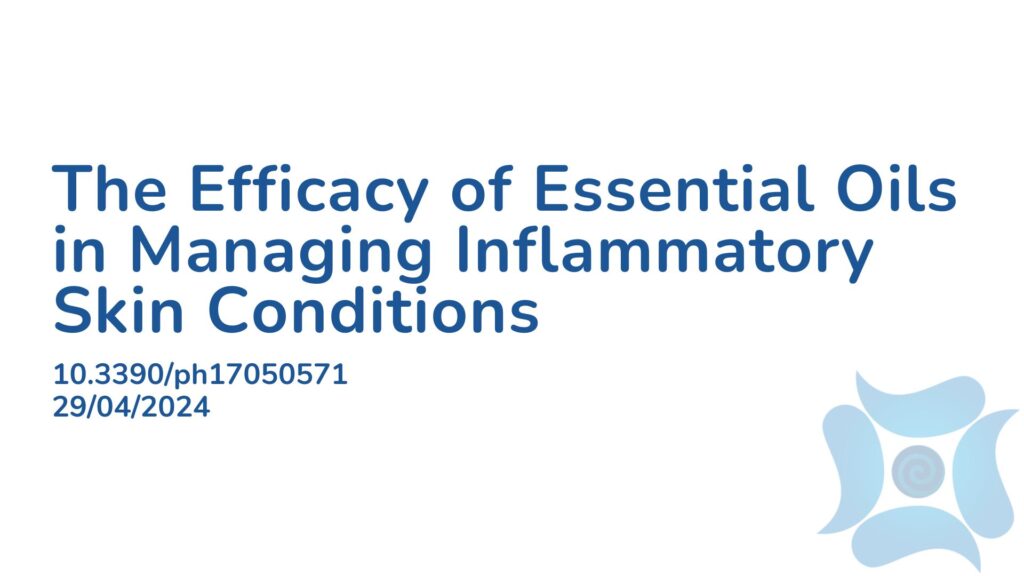Summary:
Western medical therapies such as antibiotics and steroid creams are common approaches for managing inflammatory skin conditions. However, they often lead to unwanted side effects like redness, dryness, skin thinning, resistance to treatment, or failure to address the root cause, resulting in poor patient adherence. Consequently, patients may seek complementary treatments such as herbal plant products, including essential oils (EOs). This scoping review aimed to provide an overview of the use of EOs in treating inflammatory skin conditions such as acne vulgaris, dermatitis, eczema, psoriasis, and rosacea in clinical settings. The findings indicated that tea tree oil (Melaleuca alternifolia) was the most extensively studied EO and showed promising efficacy with fewer adverse reactions compared to conventional treatments in acne management. The review also suggested potential efficacy of ajwain (Trachyspermum ammi) oil, eucalyptus (Eucalyptus globulus) oil, and cedarwood (Cedrus libani) oil for acne treatment. Placebo-controlled trials demonstrated positive effects of kānuka (Kunzea ericoides) oil and frankincense (Boswellia spp.) oil in managing psoriasis and eczema. While some studies had quality limitations such as small sample sizes, short durations, and absence of control groups, this review underscores the efficacy and safety of EOs for inflammatory skin conditions. Further studies are needed to elucidate their mechanisms of action and optimal use.
Abstract:
A systematic review and multivariate meta-analysis of the physical and mental health benefits of touch interventions
Article Publication Date: 29/04/2024
DOI: 10.3390/ph17050571



